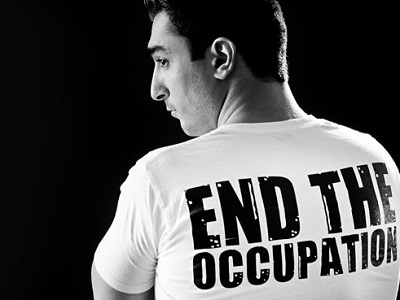
Reviewed by Mike Kuhlenbeck
Many mainstream reporters have been fired over the years for doing what poet Remi Kanazi does so well in his latest book Before the Next Bomb Drops: tell the truth about the nature of Israel’s bloody occupation of Palestine.
Kanazi breathes life into each word and every line, as every true artist does, and helps clear the dense fog of violence portrayed in the mainstream media. Journalist Chris Hedges has made the apt observation, “There is more truth, and perhaps finally more news, in Remi Kanazi’s poems than the pages of your daily newspaper or the sterile reports flashed across your screens.”
The overwhelming montage of bloody images depicting Palestine, Fallujah, Ferguson and other regions have been deliberately distorted in people’s minds. Israel’s brutal occupation of Gaza, its abuse of Palestinians and its allegiance with Western military forces such as The United States are exposed in emotional terms by the author. He translates the truth behind the lies of pro-Israel propagandists in business, politics, media and academia in his second volume of poetry Before The Next Bomb Drops: Rising Up From Brooklyn to Palestine, which is slated for release this month by Haymarket Books.
As with this New York-based author’s 2011 debut Poetic Injustice: Writings On Resistance and Palestine, Before The Next Bomb Drops has an even greater sense of urgency that cannot be ignored by the masses. Covering a wide range of topics such as US Imperialism in the Middle East to the struggle of #BlackLivesMatter, Kanazi’s impassioned cry for Human Rights is not a hollow chant but a call to action for the oppressed peoples of the world.
With the first poem in this collection, “Nakba,” Kanazi paints a grim and terrifying portrait of Palestinians undergoing changes under Israeli occupation. The poem’s title comes from the 1948 expulsion on what is known as “Nakba Day,” which commemorates the dark occasion when roughly 750,000 Palestinians were displaced following Israel’s 1947-48 “War of Independence.” The term “Nakba” comes from the Arabic term “al Nakba,” which means “The Catastrophe.”
Kanazi described the poem to Electronic Intifada as an “intimate piece that focuses on the dispossession of my grandmother in 1948 and some of the realities the Nakba produced.”
The realities produced in the aftermath of that fateful period have been ignored for too long, especially by the peoples of the West who have in one way or another aided Israel in their conquests financially, militarily or through casual indifference. “Nakba,” with powerful lines of heartbreak and hope, helps set the tone of this important literary contribution. Filled with anger and desperation, Kanazi’s insight offers the reader much more than other writers who only offer self-pity or stale verses based on regurgitated news headlines.
As with his previous work, Kanazi speaks of truths that causes allies to question their own convictions, sparing no one in his uncompromising quest for justice. In “This Poem Will Not End Apartheid,” he skillfully takes the edge of his pen and slices through the façade of activist academia, particularly “pseudo leftists,” whose “books about Israeli massacres are appreciated,” and yet “refuse to take bullets out of Israeli guns with your stances.”
The poem reflects a major problem with activism in the 21st Century. Simply understanding the injustices perpetrated against Palestinians and others does not stop the assault of bombs and bullets that plague every second of their lives. Even with the rise of social media and advancements with information technology, these achievements mean little unless people are willing to physically mobilize against oppression and, most importantly, against the oppressors themselves. As he writes, “silence is complicity.”
As an Advisory Committee member of the Palestinian Campaign for the Academic and Cultural Boycott of Israel, he does not simply prattle on about abstract ideals in hope of bettering humanity. The author, using poetry and spoken word performances as weapons against oppression, is about action, and does not fall into the same traps as the aforementioned “pseudo leftists.”
It is Kanazi’s humanity, along with his modern sensibilities, that makes his work so accessible even to people who do not read poetry. Whether one is political before reading this or not, it is bound to open readers’ eyes. The words printed on the page are just as provocative and energized as they are when recited by the author in a recording studio or live on the stage. At times poetic, at time polemical, at times both, this work should become an essential text to be placed proudly in one hand while the other hand clenches into a fist and is raised into the air.
To quote from the poem “Nakba”: “we will return/that is not a threat/not a wish/a hope/or a dream/but a promise.”
– Mike Kuhlenbeck contributed this article to PalestineChronicle.com.






some of us have been waiting for so long for Remi’s new book, I hope he comes to the UK soon..I so enjoyed his last visit..I shall review the book for him..thanks for this excellent review